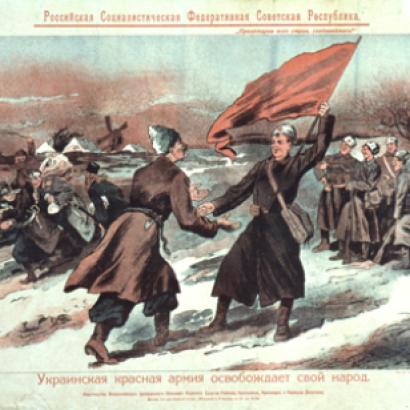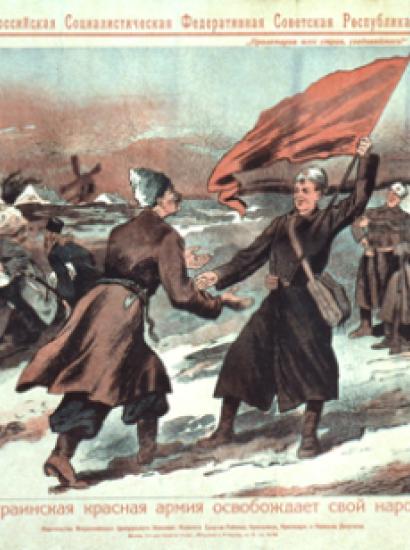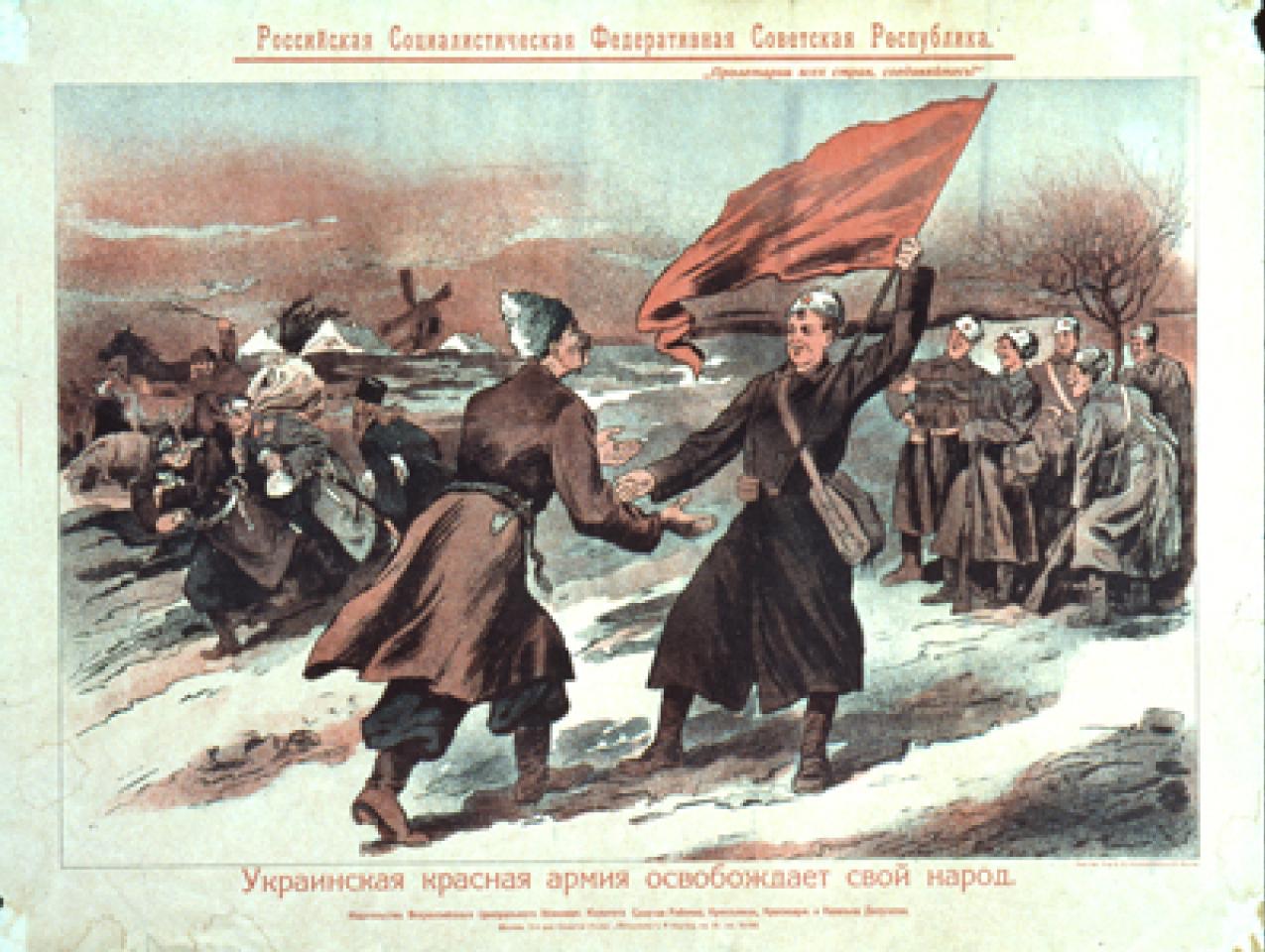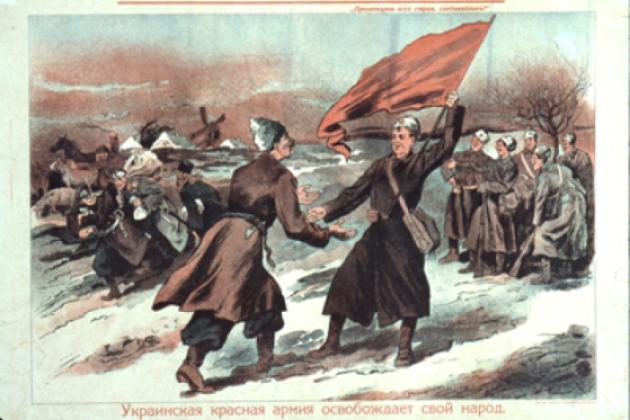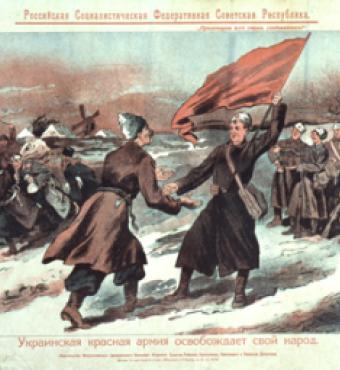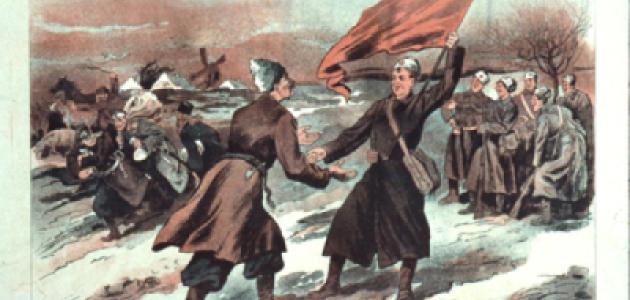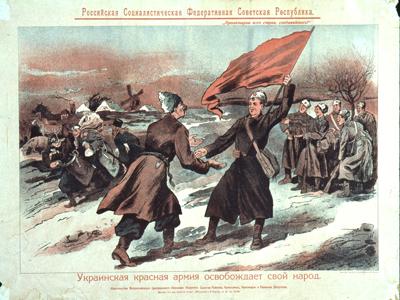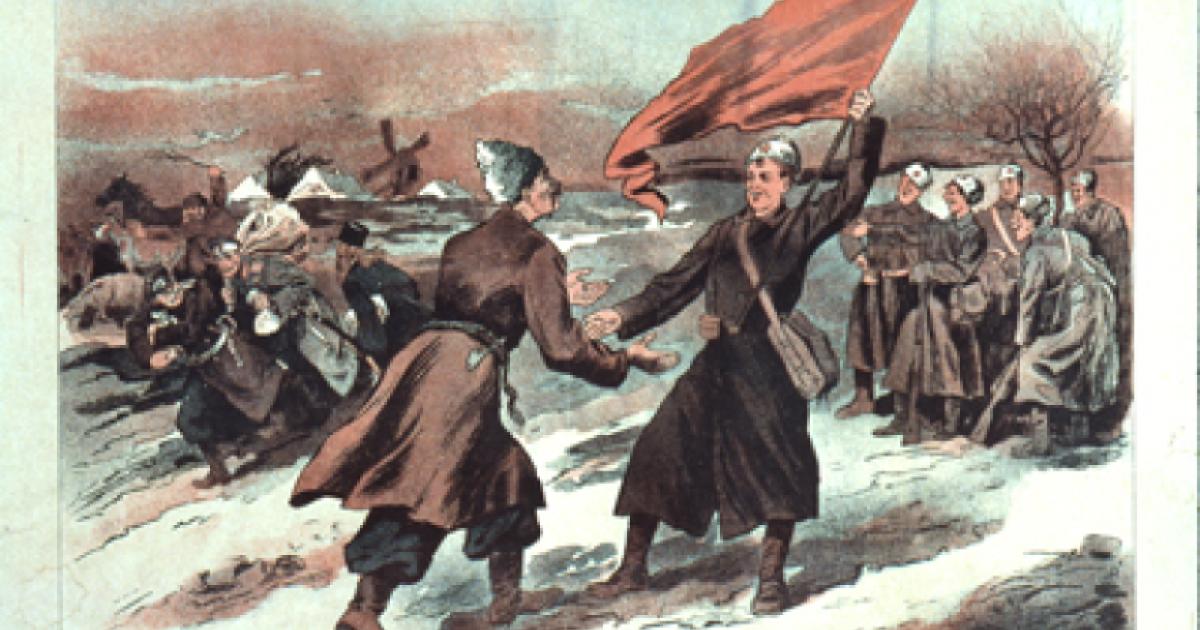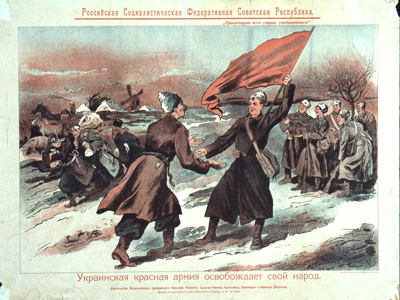
Can the West stop Vladimir Putin’s re-conquest of the former empire of the czars, plus some bonus acreage? Yes, but not east of the Dnieper River. Should the West stop him? Indisputably. But will the West stop him? To that decisive question, the answer is “No, not until it’s too late.”
Today’s strongest leader of a major state, Putin is an alarming stupor mundi to the Western intelligentsia: He has singlehandedly murdered five of our liberal elite’s foundation myths (several of which were already on life-support). And our handsomely educated, feeble intelligentsia is left breathless and witless (although such creatures are never rendered speechless).
The first myth lying in a pool of Ukrainian, Georgian, and Chechen blood holds that individuals cannot change history, but only the broadest human collectives do. Even the most-restrained members of the Annales school of a depersonalized past were stained by the stylish Marxism of their time (and thus, paradoxically, they had to ignore such questions as, “What if Lenin had not been on that train to the Finland Station? What if Stalin had been fonder of the seminary?”). While many a useful point was made about the effect of harvests on human behavior, the rigid adherence to theory—that snarling foe of mercy—meant dismissing protean figures from Alexander through Hitler. But wheat blight in Macedonia or hyperinflation in Germany never quite explained what drove one to the Indus and the other to the Volga.
Now behold Putin, whose vision, ferocity, strength of will, and enthusiasm for slashing through diplomacy’s Gordian knots have left our leaders and their courtiers stunned: How could he? How dare he?
He did.
President Obama, especially, should have seen Putin coming, given his own masquerade as a man of destiny. But members of our ruling class hold it to be self-evident that only their own kind can be valid leaders. And along comes Putin, who gleefully substitutes force for finesse and who does not care which prep school our secretaries or ministers attended. A great, if frightening, man, Putin has managed, in fifteen years, to return a moribund Russian Federation to at least the semblance of great-power status. He has won every confrontation with the West. He has redirected Russian society, bending it to his will, and rekindled Russian nationalism to burn with dreadful heat. Now he has embarked upon naked conquest.
This wasn’t supposed to happen. Ivy League, Oxbridge, and related collectives of distinguished graduates were supposed to guide the world toward enlightenment. Instead, we have foul-mouthed Putin casting himself as a mythic bogatir, a warrior from Russian legend, even posing bare-chested on horseback. Western elites mock him, just as the most-refined of the late-imperial Romans surely mocked the manners of the barbarians.
Putin is changing Eurasia’s borders by force, and we lack the courage to complicate his economy. The “man on horseback” has, literally, returned.
The second myth hacked to bits is that nationalism is dead. In a late-March address in the Netherlands, President Obama belittled Putin as having no ideology. But Putin wields a powerful ideology, one for which men are willing to kill and, if need be, die as we watch from the sidelines. He’s a self-proclaimed Great-Russian nationalist, a leader who sees a special destiny—indeed, a manifest destiny—for his people. Misled by his poker face and taste for sports, we miss the mystical depth of his conviction and the ease with which he fits into the tormented (as well as tormenting) Russian identity as the “Third Rome,” redeemer of Slavs and bastion of Christianity.
Bankrupt of ideas and discomfited by facts, Western and émigré pundits still dismiss Putin as an apparatchik, a middling KGB officer, a chinovnik, a petty clerk—ignoring all he’s accomplished, as well as his phenomenal support among his own people. But mourn as he may for the territory lost with the Soviet Union, there’s nothing Marxist-Leninist in his philosophy. He’s closer to the Russian Orthodox Church than to Russia’s last, grumpy Communists, and his model as a ruler owes far more to Ivan the Terrible and Peter the Great than to Leonid Brezhnev. He has made his fellow Russians proud again; unsettlingly, given the echoes of Hitler and Germans shamed by the Second Reich’s collapse.
This, too, befuddles Putin’s Western victims, since they have been taught that nationalism is an outmoded “construct,” a malicious fiction from the age of empires. Now “malicious” it certainly can be, but nationalism’s no “fiction.” Surely, we should have drawn that lesson from the 1990s Balkans, or from Eastern Europe’s present revival of xenophobia. But nationalism, like the Great Man theory of history, is déclassé, unacceptable in the polite society of first-class cabin elites: One no more speaks of national pride than of an indisposition of the bowels.
Yet, nationalism’s the only ideology that may have killed as many humans as Marxism and its offspring. Indeed, the rejuvenation of nationalism perfectly suits the craving of those psychologically displaced by the pace of change, by the unraveling of traditions, and by the endless banquet of seductive-but-indigestible information served up by the gigabyte. In this age of endless disruption, we first saw the default to baseline identities of ethnicity and faith. Nationalism’s the offspring of their marriage.
The human need for a protective identity is stronger than any theory of international relations we have concocted (our models of diplomacy and statecraft are the intelligentsia’s substitute for astrology—albeit without the latter discipline’s rigor).
A third myth exploded by Putin (and many another whom we rush to dismiss) is the core Western conviction that humanity can be socially engineered to reflect our liberal values. The amount of hogwash spewed in this intellectual pigpen is simply remarkable, ranging from the inane insistence that “all men want peace,” to our conviction that, once they see the benefits of our enlightened lifestyle and Starbucks, even Afghan tribesmen will sign up.
Once “free” post-Soviet Russians tasted our freedoms, they were supposed to westernize their values and ambitions. Those of us who protested two decades ago that Russians would remain Russians were derided as Cold War bigots. National character—to the extent such a thing existed—was yet another Western “construct” destined to wither with the advent of democracy and the introduction of supermarkets. Surely, the people of Russia would insist on freedoms identical to our own…
But Russians did remain Russians, after all: a bitterly self-destructive people whose salient characteristics are jealousy and suspicion, vainglory and brutality. (The spectacular high culture of Russia’s Golden and Silver Ages under the late Romanovs was born of a strain of creative DNA methodically exterminated in the GULag. Putin’s Russia is not the Russia of Chekhov: That cherry orchard was cut down long ago.)
The fourth myth bludgeoned to death by Vladimir Putin is that negotiations are a miracle cure, the universal solution, asking only patience and understanding. Again and again, Putin and his henchmen have turned our credulity against us, with chitchat buying time for Putin’s current scheme or dragging out a third-party confrontation until we lose interest. Negotiations are the opium of the intelligentsia, and our leaders are beyond rehabilitation.
We are talking ourselves to death.
Whether the issue is Ukraine (with Crimea already forgotten), Iranian nuclear weapons, regime misbehavior in Syria or, for that matter, “peace in the Middle East,” we see talking as a fully valid substitute for action, for courage, for risk, even for thinking. Led by an American president who appears to believe we could reason with cancer tumors, we are no match for a man of action like Putin.
The fifth butchered myth—related to the previous one—is captured in a cluster of incantations we recite to dispel reality: Again and again we’re told that problem X, or Y, or Z has “no military solution,” the refined version of the undergraduate howler that “War doesn’t change anything.”
In fact, quite a few problems have only military solutions. Warfare always has been humankind’s primary means of changing a situation at least one party finds unsuitable. From bands of prehistoric warriors to Putin’s artful invasion of Crimea, warfare has been the preferred approach to disputes over territory, faith, culture, or wealth…or simply something an armed group felt would be a good use of their time. Although our records are, admittedly, incomplete, we have yet to pinpoint a Mongol crisis of conscience, nor do most of us pant to revisit the fluffy closing act of Henry V: We remember the king’s Agincourt speech and the battle. Warfare is as deeply engrained in the human animal as is the religious impulse (another factor discounted by our elite).
Now Putin, through skillful clandestine, covert, and overt uses of force—as well as the mere threat of force—has taken and continues to take what he wants to further his vision of a Russia restored to greatness. Our pleas for negotiations accomplish nothing beyond self-amusement: We not only have not deterred Putin, our fecklessness has encouraged him. And we cannot persuade our petit bourgeois European counterparts of the need for even minor financial risk to deter a conqueror.
Force works. Violence determines outcomes. Power rules.
If Putin is not stopped soon, the price of stopping him later will be far higher. At present, meaningful sanctions would not save all of Ukraine, but could undercut Putin’s economy and personal authority in the longer term. We should stop him and could stop him, but we won’t.
In closing, one feels compelled to defend poor Neville Chamberlain, so often invoked by pundits appalled at our lack of resolve when Putin confronts us. Comparing that British prime minister to our current president is awfully unfair to Chamberlain. The latter knew, when he flew to Munich to meet “Herr Hitler,” that Britain was not prepared to fight and needed more time for the desperate re-armament belatedly underway to produce weapons (such as the Spitfire) to counter the German juggernaut. President Obama, by contrast, is disarming.
Vladimir Putin is, without question, the man of this decade. Let us hope he is not the man of the century.







